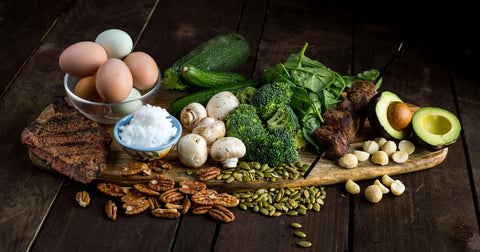So, you've had gastric bypass surgery, a life-changing step towards better health. But suddenly, you're experiencing an unexpected side effect: a symphony of farts that could rival a marching band. And worse, sometimes those farts smell like rotten eggs! Don't worry, you're not alone. Let's explore why this happens and what you can do about it.
Why Do I Fart So Much After Gastric Bypass? The Gut's Dramatic Makeover

After gastric bypass, your digestive system undergoes significant changes:
- Smaller Stomach: Your stomach is now a fraction of its original size, limiting food intake.
- Bypassed Sections: Part of your small intestine is bypassed, altering nutrient absorption and affecting your gut bacteria.
- Altered Gut Bacteria: The bacteria in your gut, your microbiome, play a crucial role in digestion. Surgery disrupts this balance, leading to changes in gas production.
Foul-Smelling Bowel Movements After Gastric Bypass: The Sulfur Connection
- Dietary Changes: After surgery, you're likely consuming more protein-rich foods, which contain sulfur compounds. As these compounds are broken down, they create sulfur-containing gases, leading to that "rotten egg" smell.
- Bacterial Fermentation: Your altered gut bacteria might be producing more of these smelly gases.
- Malabsorption: Your smaller stomach and bypassed intestine may not absorb all the nutrients from your food, leaving more for gut bacteria to feast on.
How Do I Deal with Excessive Gas After Gastric Bypass?
Here are some strategies to help tame those post-surgery toots:
1. Dietary Tweaks:

- Eat smaller, more frequent meals: This lessens the burden on your digestive system and allows for better food breakdown.
- Identify trigger foods: Common culprits include beans, cruciferous veggies (broccoli, cauliflower), and dairy.
- Chew slowly and thoroughly: This reduces the amount of air you swallow, which can contribute to gas.
- Limit carbonated drinks and artificial sweeteners: They can worsen gas and bloating.
2. Gut Health Support:

- Consider probiotics: They can help restore balance to your gut microbiome.
- Discuss digestive enzymes with your doctor: These can aid in breaking down food and reduce gas.
3. Over-the-Counter Remedies:
- Activated charcoal: May help bind to gas and reduce odor.
- Simethicone (Gas-X): Helps break up gas bubbles, making them easier to pass.
Food Intolerance Testing: Uncover Hidden Triggers
If dietary changes and over-the-counter remedies don't fully alleviate your gas, consider food intolerance testing.
- What is a Food Intolerance? It's a delayed reaction to certain foods, not a true allergy, that causes inflammation in your gut.
- Testing Benefits: Our at-home food intolerance test kit can identify specific foods that trigger your symptoms, allowing you to make informed dietary changes for lasting relief.
When to Worry About Gas After Gastric Bypass

While increased gas is a common post-surgery experience, it's important to consult your doctor if you experience:
- Severe abdominal pain
- Persistent bloating
- Changes in bowel habits (e.g., diarrhea or constipation)
- Unexplained weight loss
These could indicate a complication that needs medical attention.
The Takeaway
Increased flatulence after gastric bypass is normal, but it doesn't have to be your new reality. By making strategic dietary choices, supporting your gut health, and addressing any food intolerances, you can reclaim your comfort and confidence.
Frequently Asked Questions:
1. Is it normal to have increased gas after gastric bypass surgery?
Yes, it's very common. The changes to your digestive system, including altered gut bacteria, often lead to increased gas production in the early stages of recovery.
2. Why do my farts smell so bad after gastric bypass?
The odor is likely due to a combination of dietary changes (higher protein intake) and altered gut bacteria. Protein-rich foods contain sulfur, which gets broken down into smelly gases.
3. What foods should I avoid to reduce gas after surgery?
Common gas triggers include beans, lentils, cruciferous vegetables (broccoli, cauliflower, cabbage), carbonated drinks, and artificial sweeteners. It's helpful to keep a food diary to track your reactions and identify your personal triggers.
4. Are there any over-the-counter remedies that can help with gas?
Yes, activated charcoal and simethicone (Gas-X) can offer some relief by binding to gas or breaking up gas bubbles. However, these are temporary solutions and shouldn't be relied on long-term.
5. I've tried everything, and my gas is still unbearable. Could it be a food intolerance?
It's possible! Food intolerances can trigger inflammation and worsen gas production. Our food intolerance test kit can help identify any sensitivities you might have, allowing you to modify your diet for improved comfort.


.png?v=1737390083)
.png?v=1737187409)


